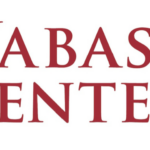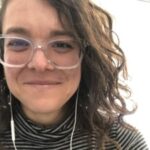Religion, Science, and Technology
Syllabi - Topic: Religion, Science, and Technology - 26 results
Select an item by clicking its checkboxA 2016 course by Michael Dodds, O.P. at the Dominican School of Philosophy and Theology provides "a philosophical account of the nature of change, including classical insights (Aristotle, Aquinas) and contemporary issues in cosmology, the methods of science and philosophy, the nature of causality, time and infinity."
A 2012 course by Amy Brown at the University of Florida "examines the relationship between religion, science, and philosophy in different religious traditions, focusing on the West."
A course by Lance Laird at Boston University aimed at cultivating "a critical and empathetic understanding of how Muslims practice healing informed by and in conversations" with Islam.
A 2011 course by Wesley Wildman at Boston University about the conversations between science and religion around health and healing.
A 2013 course by Christiana Peppard and Nicholas Pampio at Fordham University surveys "concepts of human nature before Darwin" and "debates about the origins,place and purpose of human beings in the early 21st century" following Darwin.
A 2007 course by James Jones at Rutgers University explores "some of the religious, psychological and psycho-physiological dimensions of meditation. Students will be exposed to the mediational practices and models of human selfhood from three different religious traditions â Hinduism, Christianity, and Buddhism â and several relevant and controversial areas in contemporary psychology and psychophysiology."
A 2016 course by Michael Dodds, O.P. at the Dominican School of Philosophy and Theology explores "classical and contemporary questions regarding the nature of God and creation . . . Through the retrieval of the tradition of Thomas Aquinas. Existence and attributes of God, divine compassion and human suffering, the possibility and nature of God-talk, divine action and contemporary science, cosmology and creation."
A 2013 course by Zachary Braiterman at Syracuse University that examines "the intersection of religion with auratic aesthetics, technology, and new media."
A 2007 course by Wendy Cadge at Brandeis University examines "the relationship between religion, health, and healing in the contemporary United States."
A 1999 course by Edward Tomaciewicz at DePaul University provides "a cross cultural look at notions related to the body in its well and diseased states including the significance of âplaguesâ and AIDS as a socio-religious and spiritual event."
A 2010 course by Rienk Vermij at the University of Oklahoma "trace(s) how both religious and scientific ideas were modified under each other's influence."
A 2010 course by Deeana Klepper at Boston University "explores the ways in which boundaries defining and separating magic, science, and religion emerged in western thought and culture from late antiquity through the European Enlightenment, when the definitions generally recognized in western culture today were delineated."
A 2003 course by John Karkheck and Jame Schaefer at Marquette University "aims to facilitate student thinking across the disciplines of physics and theology on . . . . the origin and nature of the universe."
A 1998 course by Jame Schaefer at Marquette University surveys the "issues at the boundaries of theology and the natural sciences -- the origins and nature of the universe, of life, and of human consciousness."
A 2012 course by Wakoh Shannon Hickey at Alfred University on the "relationships between [religion and science" . . . from multiple religious and cultural perspectives."
A 2007 course by James Jones at Rutgers University on the relationships and issues generated between modern science and religious faith.
A 1998 course by Michael Barnes at the University of Dayton explores "the relation between God and the world as understood by (primarily Western) religion and by modern science."
A 2002 course by Jim Kanaris at McGill University "is an odyssey into the relationship between religion and science since the 17th century."
A 1999 course by Ivan Strenski at the University of California-Riverside on the changing meanings and interactions of religion and science.
A 2006 course by Kent Dunlap at Trinity College examines "fundamental philosophical, ethical and historical questions at the intersection of religion and science."
A 2002 course by Ian McFarland at the University of Aberdeen surveys "the range of contemporary views, both Christian and non-Christian, on the relationship between religion and science, with special attention to the question of the degree to which language is used in religious and scientific speech."
A course by Sean Cocco at Trinity College examines Galileo's trial and the issues therein.
A 1998 course by Jame Schaefer at Marquette University offers a historical and constructive approach to "major ways in which theistic religion and the natural sciences have been perceived in relation to one another."
A course by Stephanie Mitchem at the University of South Carolina employs anthropology of religion methods to study religious healing.
A 2012 course by Whitney Bauman at Florida International University aims to "explore the ethical, cultural, historical and philosophical connections between religious traditions and Western, Modern Science."
A 2015 course by Corey Harris at Alvernia University is a "study and analysis of concepts in fundamental moral theology, particular forms of addiction, and the social ethics implications of those addictions."

